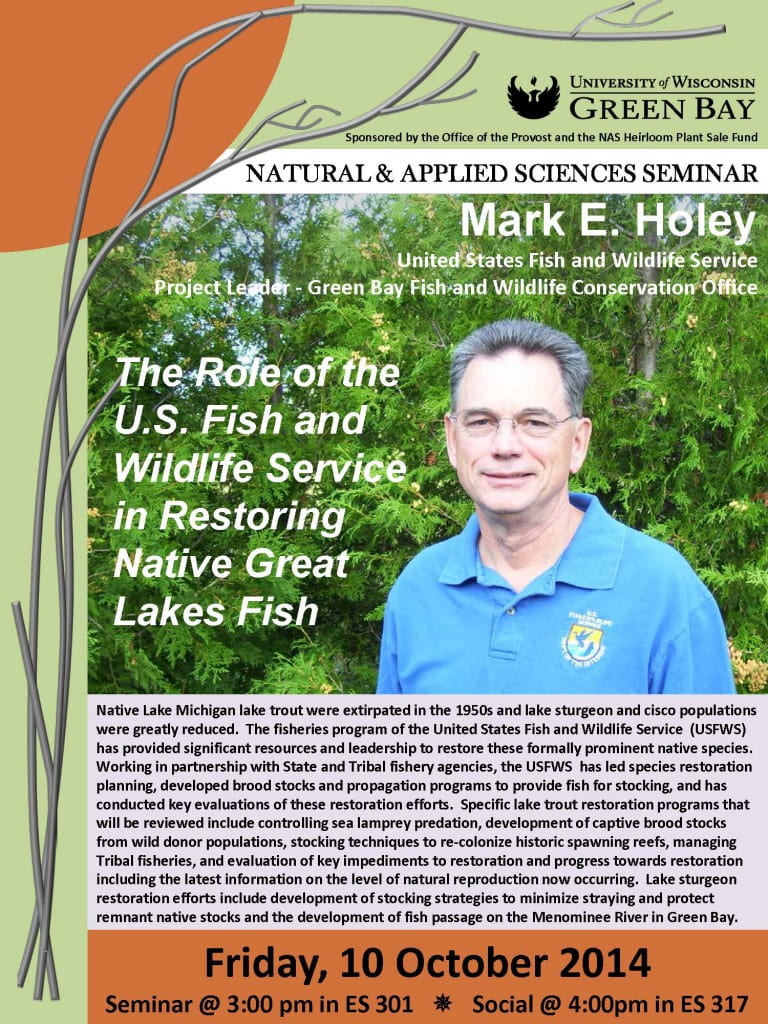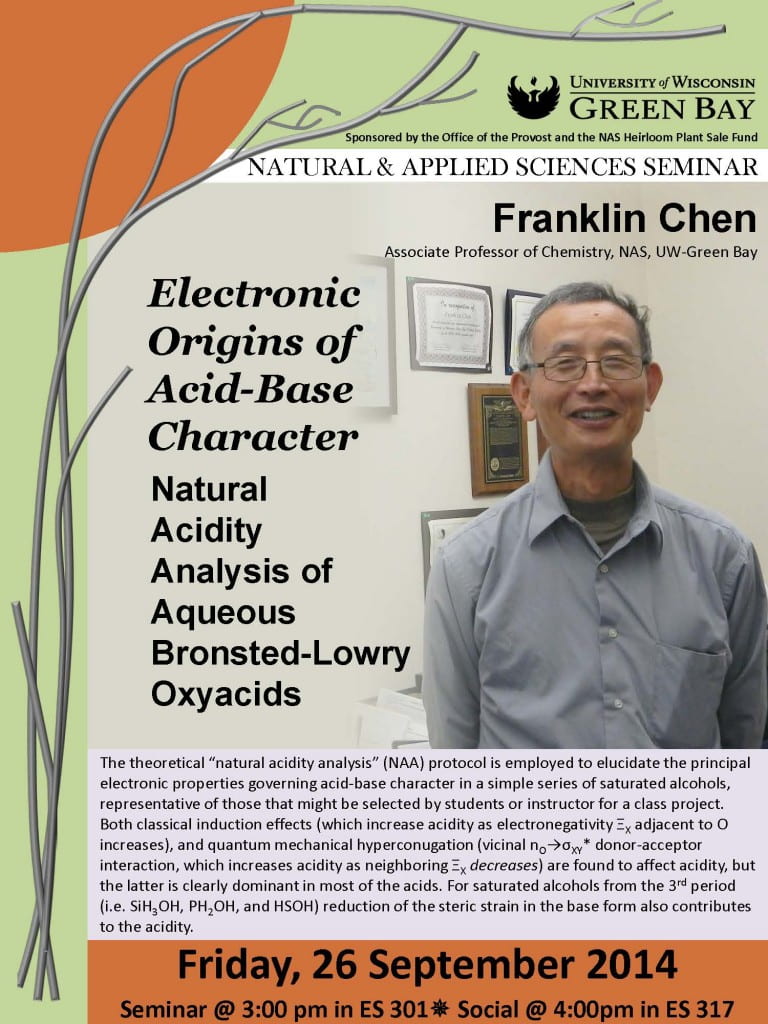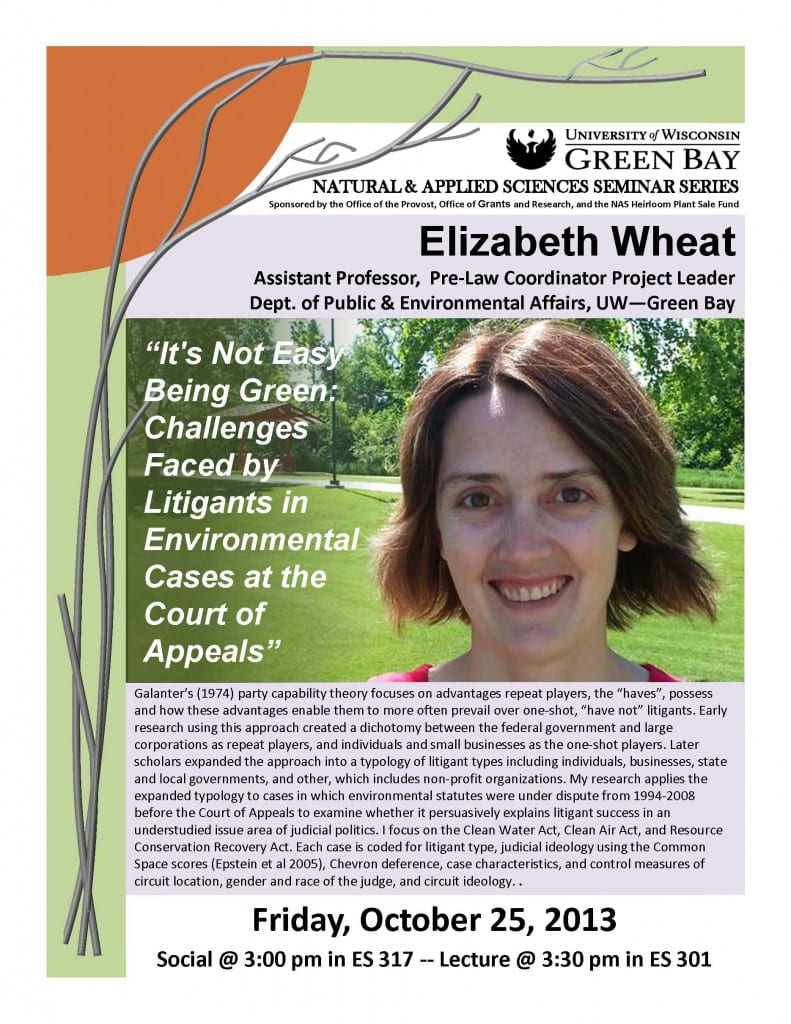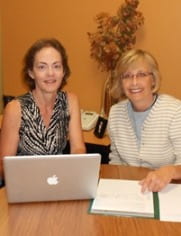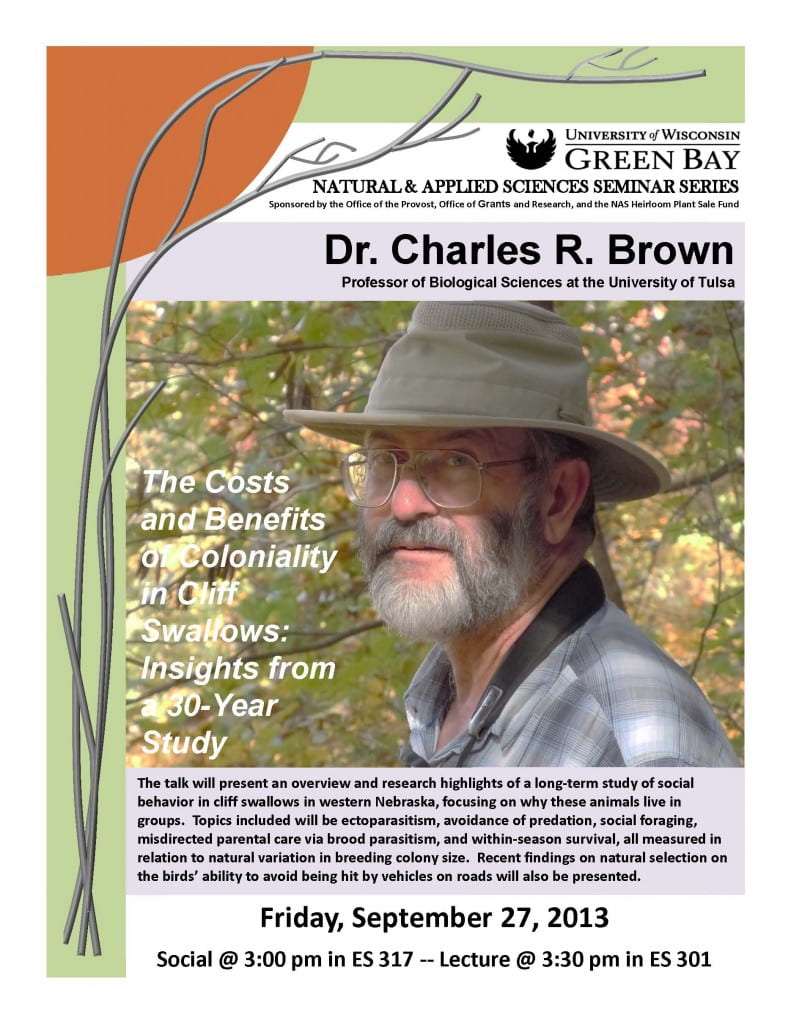Communications regarding federal funding priorities for FY 13-14 have been received. It is clear that individuals from UW-Green Bay seeking funding for their research activities will have the greatest opportunity for success in gaining that funding if their proposals are addressed to one of the priorities. As such, the UWGB Office of Grants & Research (OG&R) will be focusing on identifying grant opportunities that meet one of the following federal priorities:
- STEM (Science, Technology, Engineering, and Mathematics) – Research focused on increased learning in STEM areas, broadened participation in STEM activities, and activities focused on building the STEM workforce of the future. The STEM priority is integrated into the mission and focus of all agencies.
- Education – Many of the federal Agencies will be focusing funding on improving the educational experience (undergraduate and graduate levels) and increasing participation of underrepresented populations. Those projects that also address STEM education will have the greatest opportunity for success. Funding opportunities will recognize that instructor enhancement, especially in the undergraduate effort, is a valid outcome and that not all funds need to be directly dedicated to student outcomes.
- Energy – High interest areas for the Department of Energy are battery development and battery energy management, grid control/management, rare earth conservation/replacement, and carbon capture/storage. The Department of Energy is focused on providing funding for collaborative projects that focus on the transition from development to marketing and implementation of technologies.
An important criterion for all proposals by all Agencies will be the use of evidence-based outcomes.
In order to assist in the search for funding of research projects OG&R will submit to the Log funding priority announcements within these categories on a bi-weekly basis. Additionally, upon request faculty who are interested in submitting a proposal within these initiatives will be provided funding opportunities based upon their specific field of interests (keywords provided by potential PIs). When available, examples of funded proposals will be obtained and shared with faculty/staff to assist in their proposal development. OG&R will also provide budget templates and all other necessary forms to the PIs and assist with budget and proposal development as requested.
It is suggested that student research projects, especially those that will have the potential for presentation as part of Posters in the Rotunda, be focused on one of the priorities noted above.

